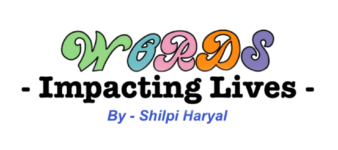Nelson Mandela once stated, “Without language, one cannot talk to people and understand them; one cannot share their hopes and aspirations, grasp their history, appreciate their poetry, or savour their songs.”
Language- a word that plasters a smile on one’s face. A word composed of only 2 syllables yet exceedingly exceptional. In this diverse world, there are currently 7117 different languages being spoken. But I have noticed that a wide range of the population in a multicultural country like Australia does not focus on learning a second language. A new language can open up a world of possibilities for the learner. Therefore, we need to understand that learning a second language is not just a privilege, it is a right!
Languages and the world
A wise man once confirmed, “With languages you are at home anywhere.” This line is quite small but the meaning behind it is quite comprehensive. Imagine yourself settling in a new country. It can become quite an unsettling experience if you do not know the native language. Also, statistics state that bilingual people earn 5 to 10 percent more for each hour compared to their monolingual peers. Adding on to this statement we would understand that there are multiple jobs requiring more than one language. From being an owner of a small coffee shop to a hotel manager, it is beneficial to know more than one language. Learning different languages also allows us to be culturally aware. It increases our exposure to world literature and improves our expressions.
Language and Brain Function
The brain is always wanting to indulge in something intriguing. This could be a thrilling comic or a juicy rumour; either way, it would be pleased to grasp a new piece of knowledge. A human has an attention span of 8 seconds which is even shorter compared to a goldfish. The number of times we check our phones reduces our attention span further. To fix this common problem it is fundamental for us to take 20 minutes daily to learn a second or third language.
A study by Dr. Thomas Bak – a lecturer at Edinburgh’s School of Philosophy, Psychology and Language Sciences – shows that young adults who could master two languages performed much better in attention tests and had much better concentration than those who spoke only one language. Dr Bak tested 853 participants in 1947, when they all were 11 years old. They were all retested in 2008 and 2010, when they were in their early 70’s. He found out that those who were bilingual performed much better. The strongest effects were seen in general intelligence and reading. These results prove how language has a great positive effect on cognition and how it is a “must-have” for all humans.
Creativity
Knowing different languages gives a great boost to our confidence and creativity. Statistics present that nearly 30% of adults face nervousness at least at one point in their life. There may be multiple ways to cure this nervousness but the most effective way to deal with it permanently would be to gain knowledge of more than one language. “A different language is a different vision of life.” Language is a type of art, that allows the person to think outside of the box. It exposes us to new and brilliant ideas and takes us on a unique path of creativity. For instance, each time you say, “Hola!” or “Ciao!”, you explore your creativity by indulging in the beautiful nuances of the language which you have recently learnt.
In conclusion, don’t stop at one language. Allow yourself to seek unique languages. Languages not only make us better people, but they help us understand the world, appreciate its history, and sing along with it. Allow your brain to grasp onto this juicy knowledge and let yourself thrive in this creativity, because “Limits of my language mean my limits of the world.”
Writer : Aarna Sharma
Grade : 6 (Year 2023)
Place : Sydney, Australia






No Comment